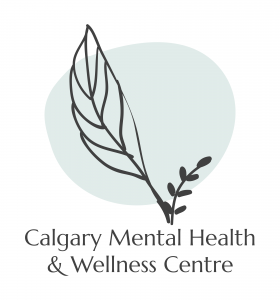Do you struggle to say no, even when you’re overwhelmed? Do you feel guilty for prioritizing your own needs? If so, you’re not alone. Many people fear setting boundaries because they don’t want to disappoint others or seem selfish. But in reality, healthy boundaries are a form of self-respect—and they actually improve relationships.
If you often put others’ needs before your own at the expense of your well-being, this guide will help you set boundaries confidently, without guilt.
What Are Boundaries, and Why Do They Matter?
Boundaries are the limits you set to protect your emotional, mental, and physical well-being. They define what is acceptable and what isn’t in your interactions with others. Without boundaries, you may feel drained, resentful, or taken advantage of.
Healthy boundaries help you:
✅ Maintain emotional and mental balance
✅ Reduce stress and burnout
✅ Improve relationships by creating mutual respect
✅ Protect your time, energy, and values
Why Do We Feel Guilty About Setting Boundaries?
Many of us grow up believing that putting others first is a sign of kindness. While kindness is important, constantly sacrificing your own well-being leads to exhaustion and resentment.
Here are some common reasons people feel guilty about setting boundaries:
🔹 Fear of disappointing others – You don’t want to hurt someone’s feelings.
🔹 Worry about seeming selfish – You feel responsible for others’ happiness.
🔹 People-pleasing habits – You’ve been conditioned to say yes to avoid conflict.
🔹 Guilt from past experiences – You feel like you “owe” certain people your time.
But remember: Saying no to others is saying yes to yourself. Your well-being matters just as much as anyone else’s.
How to Set Boundaries with Confidence
1. Identify Your Limits
Start by recognizing what makes you uncomfortable or overwhelmed. Ask yourself:
➡️ What drains my energy?
➡️ What situations make me feel resentful or taken for granted?
➡️ What do I need to feel respected and valued?
Once you know your limits, it’s easier to communicate them.
2. Use Clear and Direct Communication
Many people fear confrontation, but setting boundaries doesn’t have to be aggressive. Be firm yet kind. Use “I” statements to express your needs without blaming others.
✅ Instead of: “You always expect me to help, and I’m tired of it.”
✅ Try: “I can’t take on extra tasks right now, but I hope you understand.”
Other examples:
🚫 At work: “I can’t stay late today, but I can help tomorrow.”
🚫 With friends: “I need some alone time tonight, but let’s catch up this weekend.”
🚫 With family: “I appreciate your advice, but I’d like to make this decision myself.”
Being direct shows self-respect and encourages others to respect your boundaries too.
3. Stop Over-Explaining Yourself
Many people feel the need to justify their boundaries with long explanations. But you don’t owe anyone a detailed excuse. A simple “No, I can’t” is enough.
❌ “I wish I could help, but I have so much going on, and I’m really tired, and…”
✅ “I can’t do that right now, but I appreciate you thinking of me.”
You have the right to set boundaries without excessive justification.
4. Be Prepared for Pushback
Not everyone will respond positively when you start setting boundaries—especially if they’re used to you saying yes. Some people may:
⚡ Try to guilt-trip you (“But I really need your help!”)
⚡ Act upset or distant
⚡ Test your boundaries to see if you’ll give in
Stand your ground. People who truly respect you will adjust and accept your limits. If someone reacts negatively, it says more about them than it does about you.
5. Let Go of Guilt
Remind yourself:
💡 Taking care of your needs is NOT selfish.
💡 Saying no doesn’t mean you don’t care—it means you value yourself too.
💡 People who love and respect you will accept your boundaries.
If guilt creeps in, repeat this affirmation:
“I am allowed to set boundaries. My needs are just as important as others’ needs.”
Setting boundaries isn’t about being unkind—it’s about protecting your mental and emotional well-being. The more you practice, the easier it becomes. Healthy boundaries lead to healthier relationships, greater self-respect, and a more balanced life.
So, next time you hesitate to say no, remember: You’re not a bad person for taking care of yourself. You’re just prioritizing your well-being—exactly as you should. 💙







